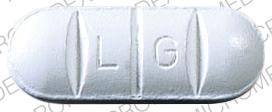Biltricide
Generic name: praziquantel [ PRAZ-i-KWON-tel ]
Drug class: Anthelmintics
What is Biltricide?
Biltricide is used to treat infections caused by schistosoma worms, which enter the body through skin that has come into contact with contaminated water. Schistosoma worms are found in Africa, South America, Middle Eastern countries, the Caribbean, and parts of Asia.
Biltricide is also used to treat infection with liver flukes, caused by a type of worm found in East Asia. This worm enters the body while eating contaminated fish.
Biltricide is for use in adults and children who are at least 1 year old.
Biltricide may also be used for purposes not listed in this medication guide.
Biltricide side effects
Get emergency medical help if you have signs of an allergic reaction: hives; difficult breathing; swelling of your face, lips, tongue, or throat.
Biltricide may cause serious side effects. Call your doctor at once if you have:
-
fever, chills, sore throat, headache, body aches, tiredness, not feeling well;
-
slow or irregular heartbeats;
-
stomach cramps, bloating, diarrhea, constipation, nausea;
-
a seizure;
-
trouble concentrating; or
-
cold sweats, skin irritation.
Common side effects of Biltricide may include:
-
general ill feeling;
-
headache, dizziness;
-
nausea, stomach discomfort;
-
fever; or
-
rash.
This is not a complete list of side effects and others may occur. Call your doctor for medical advice about side effects. You may report side effects to FDA at 1-800-FDA-1088.
Warnings
You should not take Biltricide if you are allergic to Biltricide, or if you have taken rifampin in the last 4 weeks.
Before taking this medicine
You should not use Biltricide if you are allergic to it, or if:
-
you have a parasitic infection in your eye; or
-
you have taken rifampin within the past 4 weeks.
Tell your doctor if you have ever had:
-
lumps (nodules) under your skin;
-
liver disease; or
-
heart problems.
Tell your doctor if you are pregnant or breast-feeding.
How should I take Biltricide?
Follow all directions on your prescription label and read all medication guides or instruction sheets. Use the medicine exactly as directed.
Biltricide is usually taken 3 times in one day. Take your doses 4 to 6 hours apart on that day.
Biltricide should be taken with a meal and a full glass (8 ounces) of water.
You may need to break a Biltricide tablet in order to get the correct dose. Follow your doctor's instructions.
Do not chew the tablet or portion of a tablet. The bitter taste of the tablet could cause you to gag or vomit.
If the child taking Biltricide cannot swallow a tablet or tablet portion whole, crush the tablet and mix it with a liquid or semi-solid food. The child should swallow the mixture right away without chewing.
Call your doctor if your symptoms do not improve, or if they get worse.
Store at room temperature away from moisture and heat.
What happens if I miss a dose?
Call your doctor for instructions if you miss a dose.
What happens if I overdose?
Seek emergency medical attention or call the Poison Help line at 1-800-222-1222.
What should I avoid while taking Biltricide?
Avoid driving or hazardous activity on the day you take Biltricide, and also the day after. Your reactions could be impaired.
Grapefruit may interact with Biltricide and lead to unwanted side effects. Avoid the use of grapefruit products.
What other drugs will affect Biltricide?
Sometimes it is not safe to use certain medications at the same time. Some drugs can affect your blood levels of other drugs you take, which may increase side effects or make the medications less effective.
Many drugs can affect Biltricide, and some drugs should not be used at the same time. Tell your doctor about all your current medicines and any medicine you start or stop using. This includes prescription and over-the-counter medicines, vitamins, and herbal products. Not all possible interactions are listed here.
More about Biltricide (praziquantel)
- Check interactions
- Compare alternatives
- Pricing & coupons
- Reviews (3)
- Drug images
- Side effects
- Dosage information
- During pregnancy
- Drug class: anthelmintics
- Breastfeeding
- En español
Patient resources
Professional resources
Related treatment guides
Further information
Remember, keep this and all other medicines out of the reach of children, never share your medicines with others, and use this medication only for the indication prescribed.
Always consult your healthcare provider to ensure the information displayed on this page applies to your personal circumstances.
Copyright 1996-2025 Cerner Multum, Inc. Version: 7.01.

